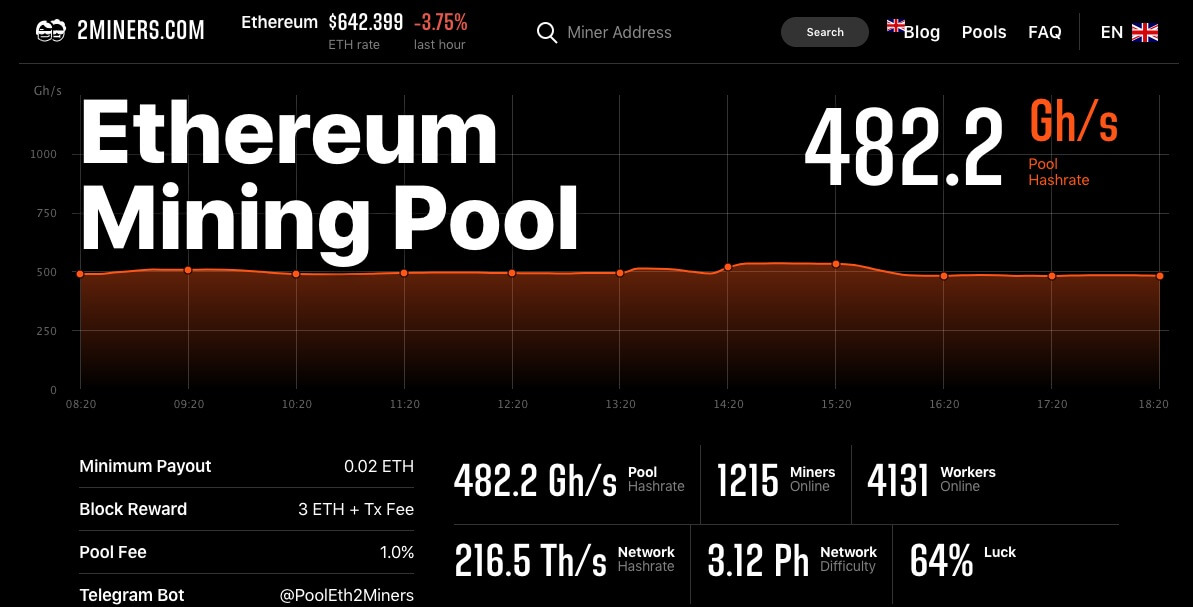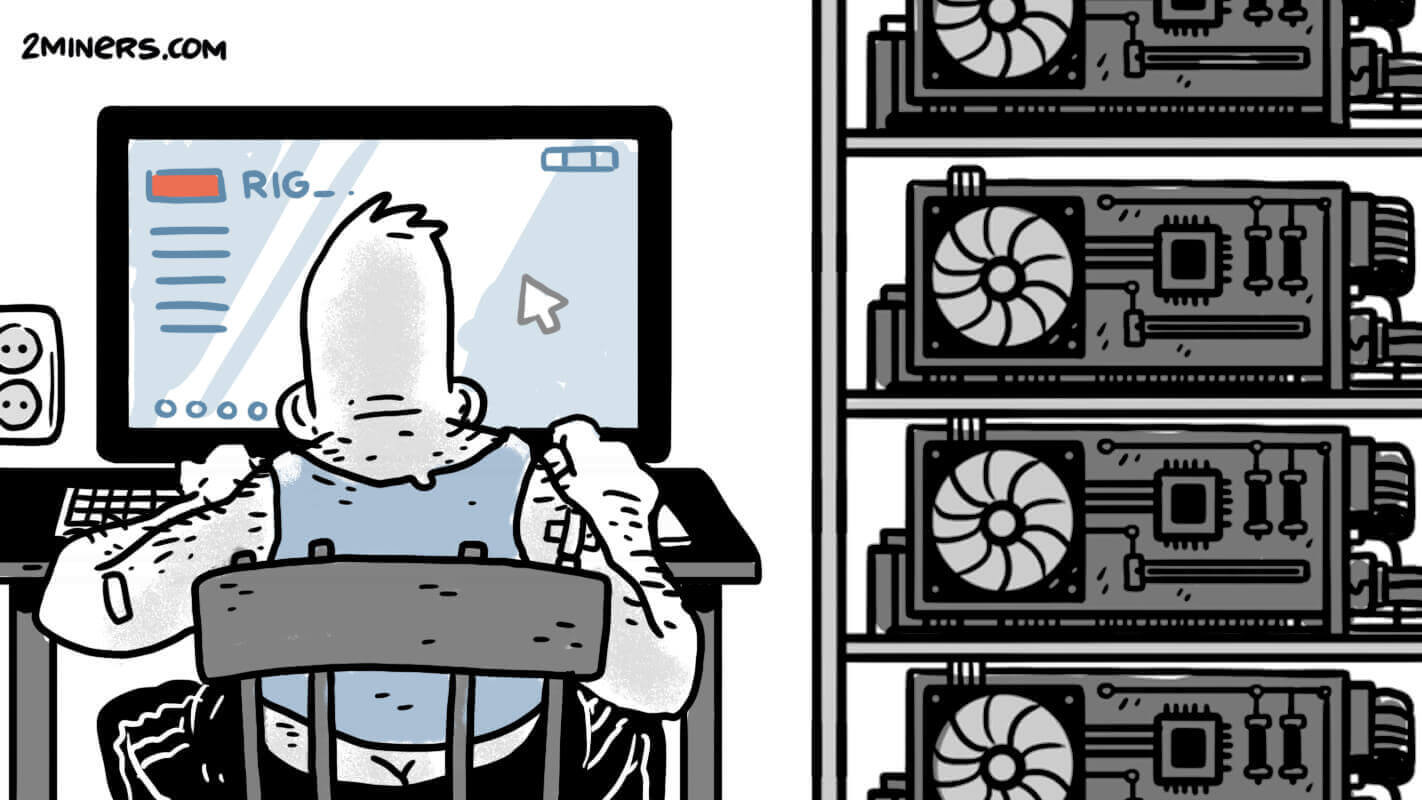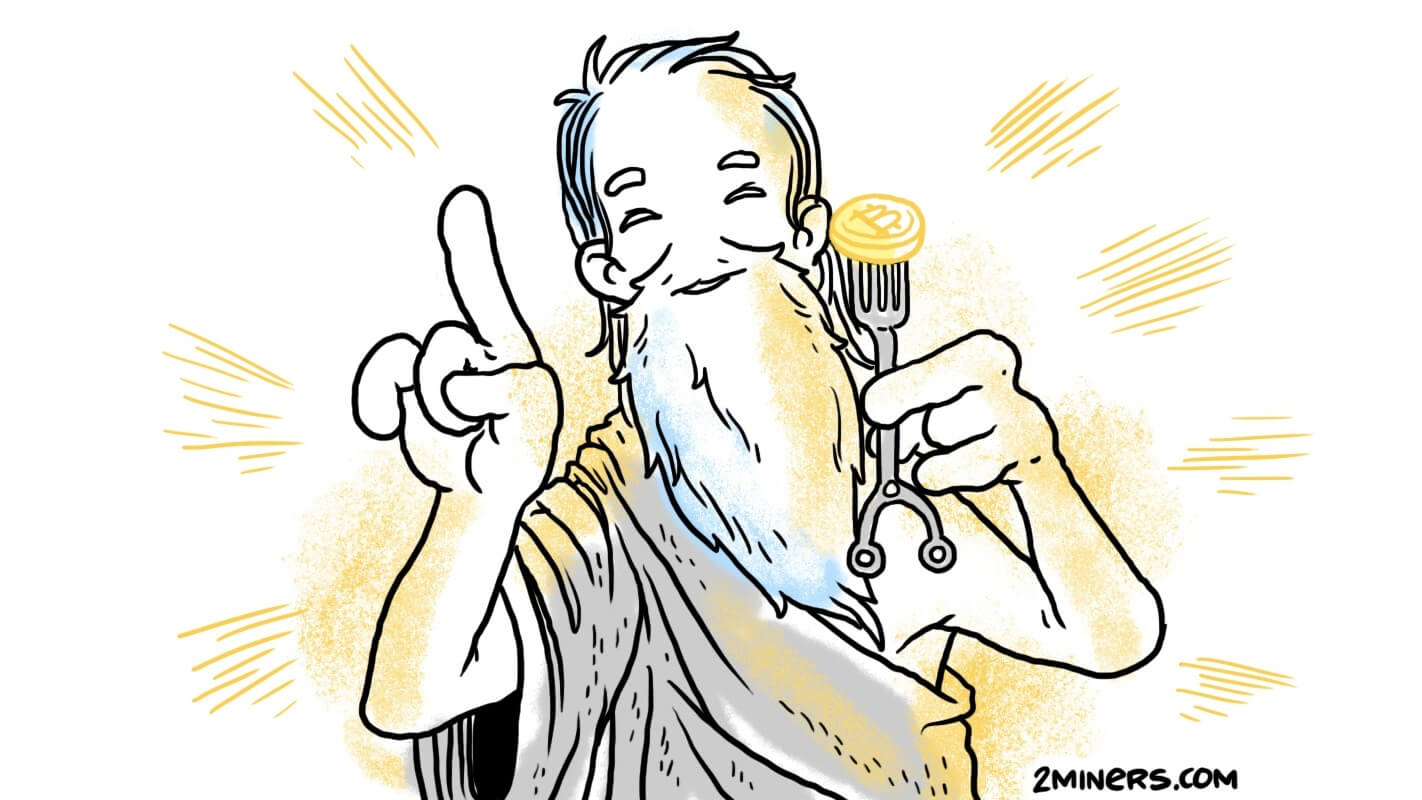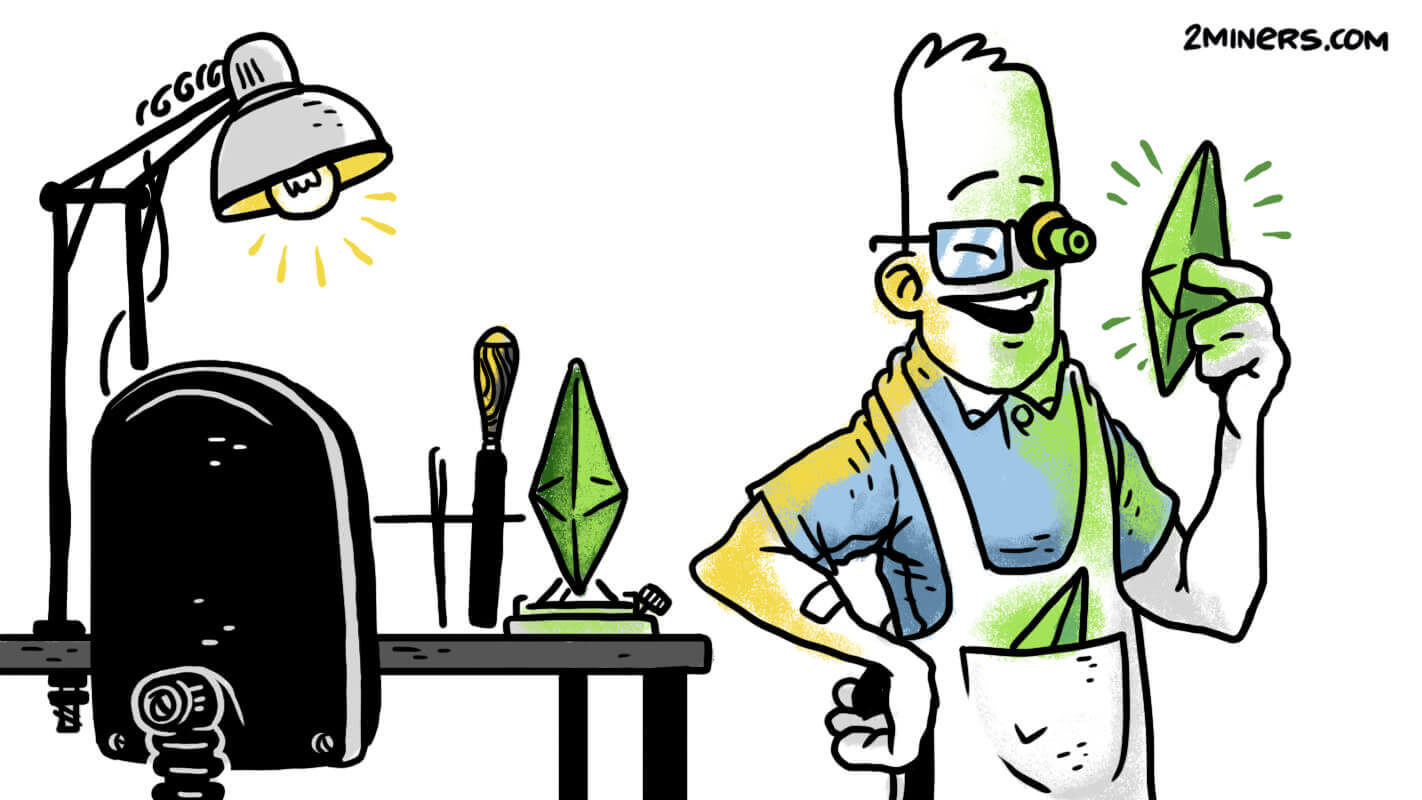Contents
Compare Pool Hashrate to Cryptocurrency Difficulty
Before you start mining on the pool, divide the currency difficulty by the pool hashrate:
- Let’s say Ether difficulty is 3 Ph and the pool hashrate is 12 Th.
- 3 Ph = 3000 Th.
- 3000 Th/12 Th = 250 seconds. On average, that’s how much time it takes the pool to find a block.
This formula is for Ether. For Equihash you should multiply difficulty by 8192 first, and then divide the result by the pool hashrate.
The more often the pool finds blocks, the more stable your income. But in the long run, the income will be the same on all the pools. So if you are going to mine for more than a couple of hours, let’s say for a month or even longer, choose a pool with the lowest ping or with the lowest minimum payout value.
Check Ping to Pool
Ping is the delay in data exchange between the miner and the pool. The share that the miner looks for is valid only for the current block in the network. When the block changes, the pool sends a new problem to the miner. If the ping is high, the miner receives new information with delay and continues searching for the solution to the old block. Even if it finds the solution now, the pool will reject it as incorrect.
Delay time depends mostly on the type of Internet connection. As a rule, it is higher with 3G and LTE than with a wired connection. Of course, ping may also differ depending on the ISP. To check your ping, you should type the following in the terminal or command line:
ping POOL_ADDRESS
For the most precise answer, you should check the miner. For example, Claymore shows the ping after every share is accepted by the pool.
The acceptable value is under 200 ms; the ideal ping would be 0 ms 🙂
The rule of thumb. The closer the pool server to you, the lower the ping. The lower the ping, the better.
As blocks are regularly found by the cryptocurrency network, the importance of the ping to the income becomes greater. For example, since the average block find time in Ethereum is 15 seconds, the average number of blocks created in the network per day is 5,760. If you multiply this number by the ping value, you will get the approximate downtime of your equipment due to the ping. But if let’s say, you mine in Europe and your ping to the European pools is high nonetheless and you can’t do anything about your Internet connection, then choose coins with a longer time between blocks. In the Hush network, miners find 576 blocks per day. The average block find time is 2.5 minutes.
Estimate the Minimum Payoff
Find the currency on WhatToMine and calculate how many coins you are supposed to mine per day. It’s best to choose a pool that allows you to get your coins at least once every 1-2 days. This way you don’t get to keep your coins in the pool wallet for too long and can easily switch between currencies any time you like.
If you want to learn how to use a Whattomine calculator, read this article.
Does the Pool Pay all Mining Rewards?
Besides the reward for found blocks, Ethereum and Ethereum Classic miners get two other types of rewards, transaction fees and the reward for so-called uncle blocks.
Transaction fee: the user pays a fee for every coin transfer. Transactions are aggregated in one block, and the fee along with the reward for the block is paid to the pool/miner that found it. Most pools keep it – it’s quite easy to check. If in the section with found blocks the reward is a round number, the fee is not paid off.
Uncle blocks: if a pool finds a block at around the same time as another pool, but a bit later, then the block is not added to the main blockchain, but the pool still gets rewarded for it. The reward for the uncle block is smaller than that for the regular block.
It is also easy to check. If in the section with blocks all the rewards are the same, then the pool probably keeps the reward for uncle blocks.
Conclusion. Things to Remember
- Pools with a high hashrate provide stable income, but in the end, it’s not higher than the income of other pools.
- In general, the closer the pool server to you, the better.
- High ping is bad, low ping is good.
- It’s better to keep coins in your local wallet.
- Besides the reward for found blocks, Ethereum, and Ethereum Classic pools must pay block transaction fees and reward for uncle blocks.
Mine safely on our pool – 2Miners. We offer a stable income with 1% fee and 20M dollars’ worth of rewards already paid.






